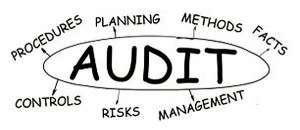Why is an Effective Internal Control System Crucial for Success?

Why is an effective internal control system crucial for success? Because businesses primarily implement an internal control system to protect themselves from internal fraud and abuse, while many do so with regulatory or standards compliance in mind.
Effective Internal Control System Based on Procedures
According to the Institute of Internal Auditors (IIA), an effective internal control system helps ensure that our organizational processes are functioning properly, that our financial information is reliable, and that we’re in compliance with applicable regulations.
It is interesting to note that, in many cases, the internal control system at many companies consists of volumes of instruction-like accounting procedures that document activities. If a company is taking the time and effort to develop a procedure-based financial control system, it’s worth the additional effort it takes to:
- Understand major financial processes;
- Establish key finance polices and goals (including performance goals and accurate financial statements);
- Determine which processes introduce the greatest amount of risk and which are material to our financial goals;
- Prioritize development of the internal control system according to materiality, risk, and other important criteria;
- Incorporate best practices; and
- Foster an environment in which continual improvement is the status quo.
Is there a better indicator of an effective internal control system than clear goals and key performance metrics that are consistently measured and regularly improving? And are you taking advantage of the financial control system to improve process results and your financial performance?
Improving Processes in the Production Area and the Office
Discussions of process improvement and quality commonly reference the production area, or shop floor. Is it any less important for your other key office processes (for example, accounting and finance) to function effectively and efficiently? If you’re a service provider rather than a manufacturer, are quality and process improvement less material? (Of course not.)
How well does your company manage financial aspects like working capital, debt and investments, and leasing? These are as vital to a company’s success as efficient product design and production, yet few attempt to understand and improve finance processes to the same degree as, say, the product development process.
In fact, a lack of focus on finance is common, especially among privately-owned Small-Medium Businesses (SMBs). Research shows that a majority of SMBs do not create capital plans, do not actively manage working capital, nor do they conduct analysis of financial statements.
Do you know if you’re making money on the cash you borrow? How about the assets you deploy, like accounts receivable, inventory, or cash? What about asset acquisitions you make? These are hard questions but they’re the kinds of questions you should be asking before you raise debt or equity capital.
What really represents the bigger threat to the success of your business:
- One of your accounts receivables staff borrowing 5-10 euros from petty cash when they’re short of cash and they want to go out to lunch on Friday? Or…
- Not having well-thought-out and consistent methods for managing high level finances that — if your financial situation suddenly and significantly worsened — could result in millions’ worth of losses? The answer should be obvious.
 A Financial Control System that Focuses on Improvement and Success
A Financial Control System that Focuses on Improvement and Success
We’re not implying that businesses ought to ignore cash drawer controls. What we are suggesting is that focusing on low risk/low payoff components while neglecting key aspects doesn’t indicate an internal control system that appropriately addresses risk or that has its priorities in order to conform with SOX corporate governance.
Focusing on the mundane or trivial will do little to improve your overall financial performance! Internal control systems should be designed for continual improvement in key aspects of your operations, such as:
- Regularly reviewing and improving the overall capital structure;
- Using a capital plan to minimize the cost of capital while strengthening your debt/equity position;
- Managing working capital so excessive inventories and receivables do not sap your financial resources;
- Ensuring proper calculations and scenarios are explored while making debt & investment or leasing decisions; and
- Maximizing returns while minimizing costs for cash and merchant accounts.
A system of well-defined processes is not only about control or compliance: it is also about consistently striving to do a little better. Control systems that are designed only to achieve compliance are doing the bare minimum, which means they represent missed opportunities — opportunities to gain and keep a competitive edge, for instance.
That ought to be enough reason for any size and type of company to think about using the process approach to ensure continual improvement and an effective system of internal controls.
The 17 COSO Principles
The Committee of Sponsoring Organizations of the Treadway Commission (COSO) Internal Control – Integrated Framework has 17 principles to establish an internal control system. Ensuring that each principle exists within your accounting management system will determine the effectiveness of your system of internal controls.
The 17 COSO principles include:
- Demonstrates commitment to integrity and ethical values
- Exercises oversight responsibility
- Establishes structure, authority and responsibility
- Demonstrates commitment to competence
- Enforces accountability
- Specifies relevant objectives
- Identifies and analyzes risk
- Assesses fraud risk
- Identifies and analyzes significant change
- Selects and develops control activities
- Selects and develops general controls over technology
- Deploys control activities through policies and procedures
- Uses relevant information
- Communicates internally
- Communicates externally
- Conducts ongoing and/or separate evaluations
- Evaluates and communicates deficiencies
The Internal Control Framework
Each of the 17 COSO principles by themselves are not the internal controls. They represent the actions taken by a working accounting management system of internal controls. Looked at another way, focusing on the nouns, you would get a list of things that should be in place for an effective system of internal controls. An effective internal control framework has:
- Integrity And Ethical Values
- Oversight
- Structure, Authority And Responsibility
- Competence
- Accountability
- Objectives
- Risk Assessment
- Fraud Assessment
- Change Assessment
- Control Activities
- Technology Controls
- Policies And Procedures
- Information (Data Driven)
- Internal Communication
- External Communication
- Evaluations
- Deficiencies
An Internal Control System is Crucial for Success

Some like to think that the segregation of accounting department duties is sufficient for internal control. The reality is that you need a lot more than just to segregate duties.
You will also need a governance framework or culture along with regular risk assessments that truly uncover any impediments to achieving your performance goals. Preventing failure is a far more powerful internal control than reacting to failures with corrective action.
To help you build an effective internal control system for success, consider the Bizmanualz Finance Policies and Procedures Manual. Download free policies and procedures and see for yourself what companies like yours have saved in planning and development alone!

















Leave a Reply